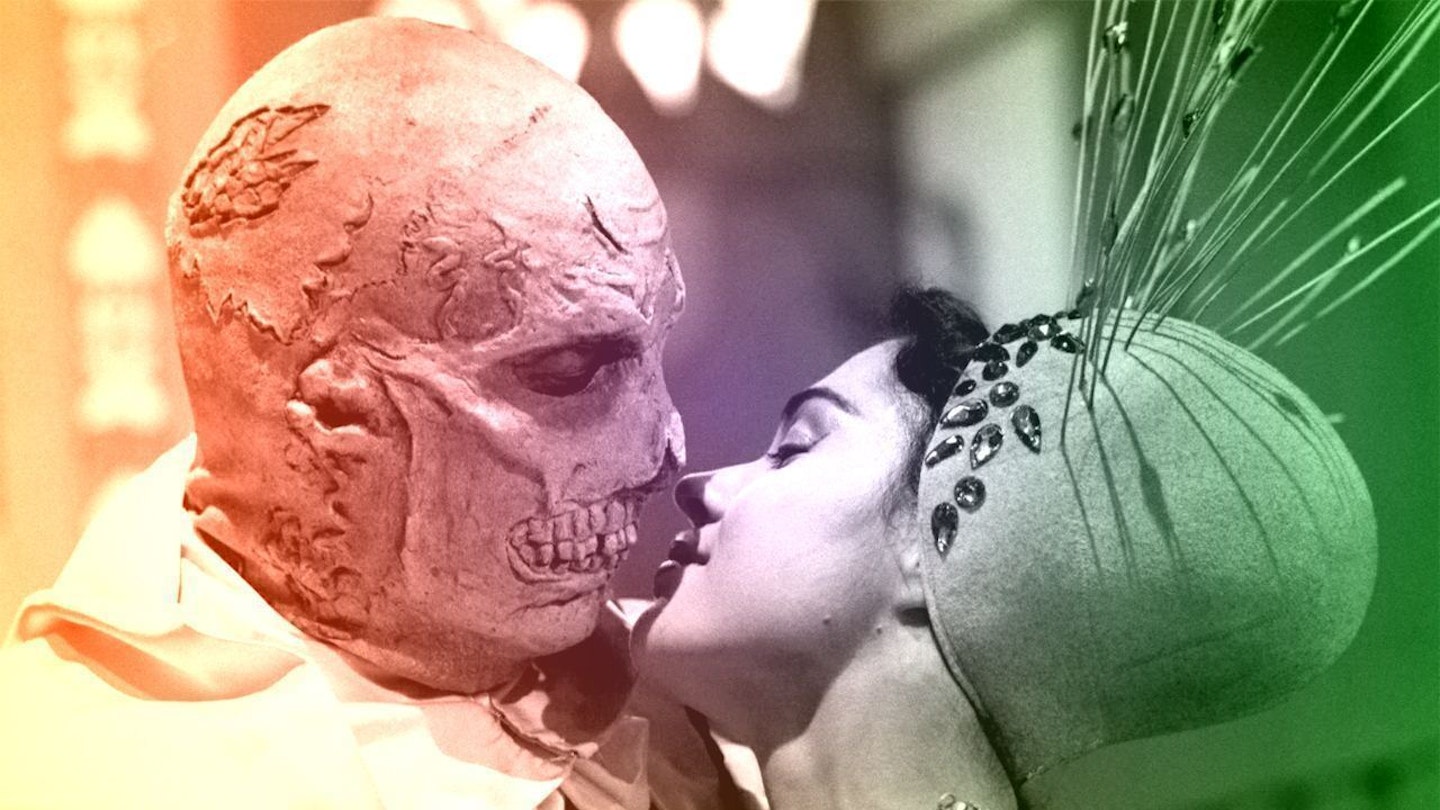Very much the centrepiece of Vincent Price’s third term as the creepy tsar of horror — following the traditional gloom of the ‘50s (see House Of Wax) and the lurid, Roger Corman directed flamboyance of the ‘60s (see Fall Of The House Of Usher) — this madcap revenge flick is a gothic hoot. Hammer horror in its gaudy, over-bearing, art deco stylings (although, it isn’t from that stable) it is a haughty, highly entertaining entry in British horror (it was actually financed by MGM) that blends, almost imperceptibly, gallows humour and genuine fright.
Although set in the 1920s, director Robert Fuest transports the whodunit devices of Agatha Christie and a modern droll humour into Phibes twisted conniving. On his trail is a classic British plod, slow but unshakable, in Inspector Trout (Peter Jeffery) puzzled by the deranged features of the case. Phibes, you see, is in possession of the perfect alibi — he’s dead (“perishing” in another car crash rushing to be by his wife’s side). This also grants a scabby, proto-Freddie make-up job for Price just to add a supernatural gauze over what is essentially a flowery slasher movie.
What makes the film as rich as it is silly, is both Price’s smoked-ham performance (it is moot to criticise such camp revelries, he’s a half-dead, pucker-faced, diabolical genius who speaks through a mechanical voice-box — can that be overplayed?) and the sheer imagination applied to the death sequences (which make up the body of the film). For the “rats” stage of the plot, ravenous rodents are snuck into the cockpit of one sorry doctor, another has their skull crushed by a “frog mask”. There is even a trace of subtlety no less, in the gradual shift from sympathy to reviling in our opinion of Phibes’ actions.
The language, too, matches the exotic sets and baroque deaths, with a mock-Shakespearean pomposity that Price milks for every strident syllable: “My precious jewel, I will join you in your setting. We shall be reunited forever in a secluded corner of the great elysian field of the beautiful beyond!” Such barmy cadences are sorely missed from the genre that has since taken itself far too seriously.
